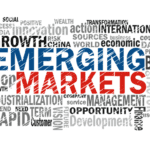Global investment products buy securities in the United States as well as in over 47 countries with investible stock markets. This differs from international funds that exclude the United States markets. In global investment, managers can allocate between the US and other markets opportunistically. Hemispheres Investment Management’s flagship investment product is its Global Equities product. The investment managers have over 35 years of experience managing Global Equities.
This article addresses several common questions relating to global investment.
1. What are the key benefits of global investing?
Global investing offers several benefits, chief among them diversification. By allocating capital across different markets, sectors, and economies, you reduce the risk that comes with investing solely in your home market. For example, while a downturn in the U.S. economy might negatively impact domestic stocks, strong growth in Asia, Europe or South America can help stabilize your portfolio. Additionally, international markets may provide access to industries or companies that are underrepresented in your home market, enhancing potential returns.
Correlation coefficients measure diversification. Statistically, a correlation factor of 0.7 or less means that adding a different asset class or individual stock to a portfolio offers diversification benefits, lowering risk. Emerging markets for example, have an average correlation statistic of 0.60 for the period from 1988 to 2023. Adding asset classes such as emerging markets can reduce aggregate risk in a portfolio.
Globally, Hemispheres Investment Management (HIM) can invest in over 10,000 market leading companies with market value of over $1 billion. This compares to 2,000+ in the U.S. alone. Hemispheres is a value manager and utilizes a bottom-up approach to asset allocation. This means that we purchase stocks trading at a discount to intrinsic value that have strong financial fundamentals. Stocks can trade below intrinsic value because the sector is out of favor temporarily or there could be a short-term problem at the firm, in the market or in the country that resulted in a decline in share price. We buy quality firms and reap return benefits as the stock price re-rates to an appropriate fair market value. Therefore, the benefits of global investing include both diversification and shareholder return.
2. What risks should I consider when investing globally?
While global investing offers significant rewards, it also introduces unique risks. Political instability, regulatory uncertainties, and market volatility can affect individual countries differently. Currency fluctuations are another risk, as exchange rates between your home currency and the foreign currency can affect returns.
As an experienced advisor, HIM is aware of countries and stock markets subject to the above referenced risks. All 47 stock markets included in the MSCI All Country World Index have regulatory oversight of their listed companies. Hemispheres owns market leading or high-quality companies, of which many adhere to international accounting standards; some companies even dually report their financial results using their domestic market accounting standards and U.S accounting standards (U.S. Generally Accepting Accounting Standards [GAAP]. Additionally, the world’s regulators often work together to coordinate reporting standards.
You can manage most risks associated with global investing through due diligence, thorough research, and an appropriate investment strategy.
3. How do currency exchange rates impact global investments?
Currency exchange rates can have a profound effect on the returns of global investments. For instance, if the euro weakens against your home currency (e.g., the U.S. dollar) after you invest in a European company, your returns may decrease when converted back into dollars, even if the stock price appreciates. Conversely, if the euro strengthens, you could gain on both the stock’s performance and the currency exchange rate.
HIM does not hedge against currency risk, however allocation decisions certainly consider currency. A long-term approach also may allow currency fluctuations to balance out over time.
4. Which countries or regions offer the best investment opportunities right now?
Global investment opportunities shift based on economic cycles, government policies, and geopolitical factors. HIM looks for value stocks in countries which show strong or improving economic growth, favorable demographic trends, and increasing integration into global supply chains.
You should always balance opportunities in global markets against potential risks, as no single region suits every investor. A diversified global approach often provides the best results. HIM is a separate account manager that customizes portfolios to meet individual client goals and risk profile.
5. What tools help with assessment of political and economic stability of a foreign market?
When considering investments in foreign markets, assessing political and economic stability is crucial. Key economic indicators such as GDP growth, inflation rates, and employment levels can provide insight into the strength of an economy. A country’s political landscape, including upcoming elections, government policies on foreign investment, and the rule of law are pivotal in determining investment risk or return potential. Countries with a history of stable governance, favorable business environments, and strong investor protections are generally safer for foreign investors.
Third-party assessments from organizations such as the World Bank, IMF, and various credit rating agencies add key insights. These institutions often publish risk rankings and economic forecasts for different regions, providing additional data for a thorough analysis.
6. What types of global investment vehicles are available?
Investors have a variety of vehicles to choose from when investing globally. While Hemispheres can and does invest directly in foreign markets, it invests primarily in American Depositary Receipts (ADRs) for its non-U.S. holdings. ADRs represent shares of foreign companies but trade on U.S. exchanges. The instruments trade in U.S. dollars and avoids foreign stock exchange nuances.
Investors can also invest through global mutual funds or exchange-traded funds (ETFs), which provide instant diversification across a wide range of international stocks or bonds. Many of these ETFs and mutual funds passively manage their investments. The benefits of passive management include low fees, however historically actively managed funds outperform passive funds in global strategies especially in emerging markets. Investors also need to be wary of ETFs that utilize leverage in the investment strategy. Leverage can enhance returns, but it also heightens risk. HIM does not utilize leverage in its strategies.
7. How can I navigate different regulatory and tax frameworks in foreign markets?
Investing globally means navigating varying regulatory environments and tax systems. In some countries, foreign investors may face restrictions on certain types of assets, while in others, tax laws may be unfavorable for capital gains or dividends. As an investor, it’s important to understand not only the legal and regulatory framework of the country in which you’re investing but also any tax treaties that may exist between your home country and the foreign market.
Because HIM invests primarily in ADRs, the regulatory, tax and legal framework complies with U.S. laws, regulations and practices. Tax treaties avoid double taxation.
8. What role do emerging markets play in a global portfolio?
Emerging markets, such as those in China, India, Brazil, and South Africa, often present high-growth opportunities, particularly for investors seeking long-term capital appreciation. These economies tend to grow at a faster rate than developed markets, driven by factors such as expanding middle-class populations, rapid urbanization, and technological innovation. Furthermore, analyst coverage of companies in emerging markets is much thinner than in developed markets. As a result, managers like Hemispheres Investment Management locate and invest in quality stocks that are undervalued, offering significant opportunities to earn excess returns.
However, emerging markets can also carry higher risks, including political instability, inflation, and weaker regulatory frameworks. For this reason, an experienced manager such as HIM is an important key to achievement of a successful investment outcome. Furthermore, you should include emerging markets in a globally diversified portfolio but balance them with investments in more stable, developed markets to manage overall risk.
9. What is the best way to balance global and domestic investments in a portfolio?
There is no one-size-fits-all approach to balancing global and domestic investments. A well-diversified portfolio should include a combination of both, based on your risk tolerance, investment objectives, and time horizon. As of January 2024, the Morgan Stanley Capital International All Country World Index country weighting for the U.S. country was 63.2%. This is a good starting point for most portfolio allocations.
However, you may need to adjust this allocation based on specific market conditions, economic outlooks, or individual preferences. Working with an investment advisor to periodically review and rebalance your portfolio helps ensure that your global and domestic allocations align with your goals.
10. How do geopolitical events affect global markets?
Geopolitical events—such as wars, trade disputes, elections, and international agreements—often lead to short-term volatility in global markets. These events can impact investor sentiment, disrupt trade, and affect the economic policies of countries. For example, Brexit caused uncertainty in European markets, while ongoing U.S.-China trade tensions have affected global supply chains.
As a long-term investor, it’s important to look beyond short-term market noise and focus on underlying economic fundamentals. Temporary disruptions often present opportunity to earn excess return. Markets tend to recover from geopolitical shocks over time, so a disciplined approach to global investing, combined with proper diversification, will help you manage this type of risk.
Conclusion
Global investing offers unparalleled opportunities to diversify your portfolio, enhance returns, and gain exposure to growth markets. However, it also comes with its own set of risks and challenges. Working with knowledgeable and seasoned professionals, such as Hemispheres Investment Management, you can harness the benefits of global investing while managing its risks effectively. The principals at Hemispheres Investment Management have successfully managed Global Portfolios for over 35 years.
Global investing is not a one-time decision but an ongoing process that requires periodic review and adjustments. Whether you’re looking to capitalize on growth in emerging markets or hedge against risks in your home country, global investments can play a vital role in building a resilient and prosperous portfolio.
Please contact Hemispheres Investment Management for a free consultation. We offer personalized guidance and strategies that can help you or your business leverage global equities to meet your financial objectives. Book a Meeting






